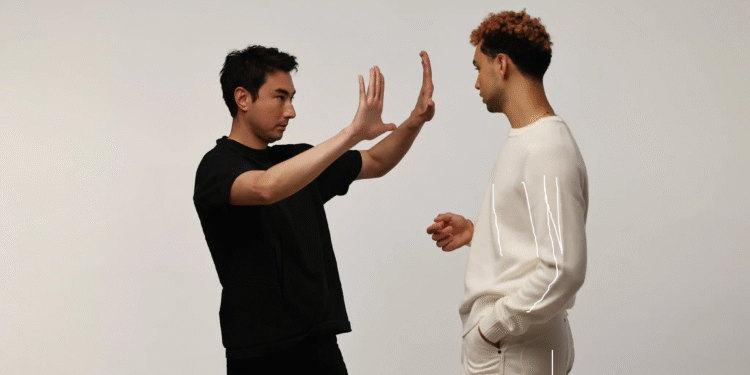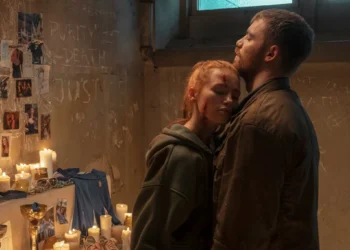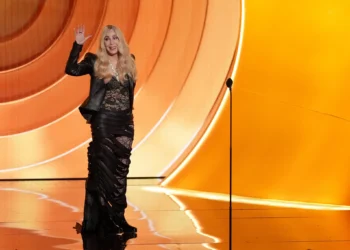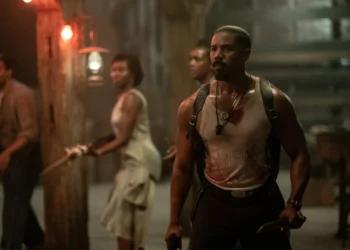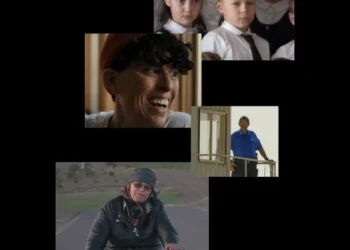A Writer of “The Bear” Makes Obsession His Main Course with ‘Lurker’
The Sundance hit’s director and stars discuss their new movie, in which a superfan becomes friends with his pop-singer idol, with alarming consequences.
Alex Russell, a 34-year-old writer and producer best recognized for his work on the Emmy-winning television series “Beef” and “The Bear,” went to the Los Angeles Zoo to see the chimps when he was working on “Lurker,” which would eventually be his feature directing debut.
From Los Angeles, he stated over a video call that among chimps, everyone knows their place and there is a very clear alpha hierarchy. But sometimes, which is very funny to me and very Lurker, they’ll groom, and the other one doesn’t groom them back. It’s like, OK, you are the one who grooms me. That’s our deal.
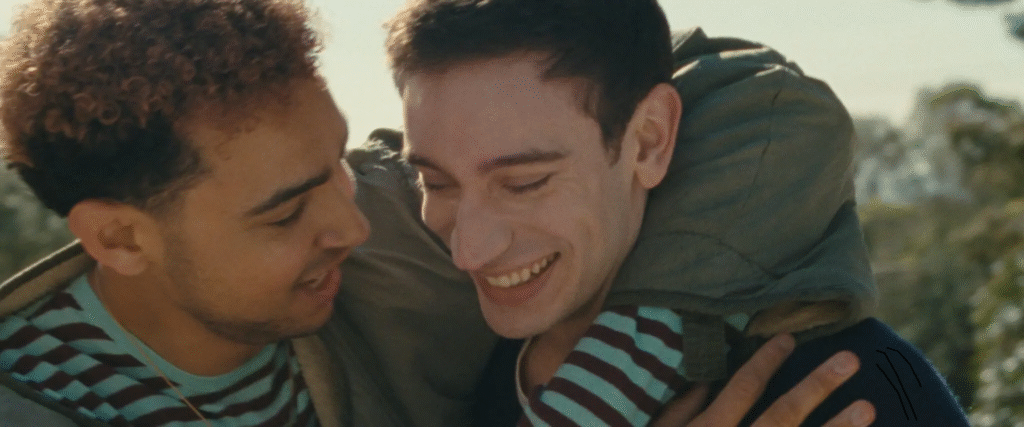
The Darwinian lessons in the film seem both literally—in one scene, you can see the iPhone footage Russell captured at the zoo that day—and figuratively, as it depicts the poisonous pas de deux between Oliver (Archie Madekwe), a rising pop star, and Matthew (Théodore Pellerin), a fan who, over the course of 100 tense, perspective-shifting minutes, becomes his friend, employee, and potential saboteur.
When it debuted at the Sundance Film Festival earlier this year, “Lurker” (in theaters) was a word-of-mouth sensation that acted like a slick and really topical psychosexual thriller, even though it also belongs to a traditional cinematic tradition: it’s half “All About Eve” for Gen Z and half “Single White Female” for young men who grew up on Tumblr confessionals and Drake mixtapes.
The complexities of any friendship based on an uneven foundation, as well as the pitfalls and tribulations of fame, are central to the plot. In a video interview, Kenneth Blume, the actual music producer behind Oliver’s catchy onscreen balladry, said, “By the end of it, I couldn’t even place Matthew. Does he want to [expletive] Oliver? Does he want to kill him? Does he want to be him?”
Russell’s “Lurker” started off as a COVID-era writing experiment — “just a test to see if I could write something longer than half-hour television” — that unexpectedly blossomed. “I was feeling a lot of things about relationships among 20-something men,” Russell said, “and I didn’t know how to express it other than in the form of screenplay. And to this day, it’s the easiest thing I ever wrote.”
Soon after the screenplay was finished, Pellerin, a 28-year-old French Canadian actor who is not well known (“Becoming Karl Lagerfeld”), was hired to portray Matthew, a cautious 20-something who lives in an unremarkable ranch house with his grandmother and spends his days working retail at a trendy clothing store in Los Angeles. There, he meets Oliver for the first time, and he wins favor with the wary star by acting knowing he has no idea who he is.
Despite having a strong portfolio in zeitgeisty movies like “Saltburn” and “Midsommar,” 30-year-old Madekwe’s initial “Lurker” audition—for the role of Matthew, which he initially tried out for—was lost in the shuffle, and he wasn’t cast as Oliver until 2023. The film’s bait-and-switch beginning scene, appropriately, makes it unclear right away who the pop singer and the acolyte are.
“You only believe that because of Théo’s captivating performance,” Madekwe quipped during a three-way Zoom conversation with Russell from his hometown of London, while Pellerin beamed in from Montreal. “It’s his energy pulsating through the screen.”
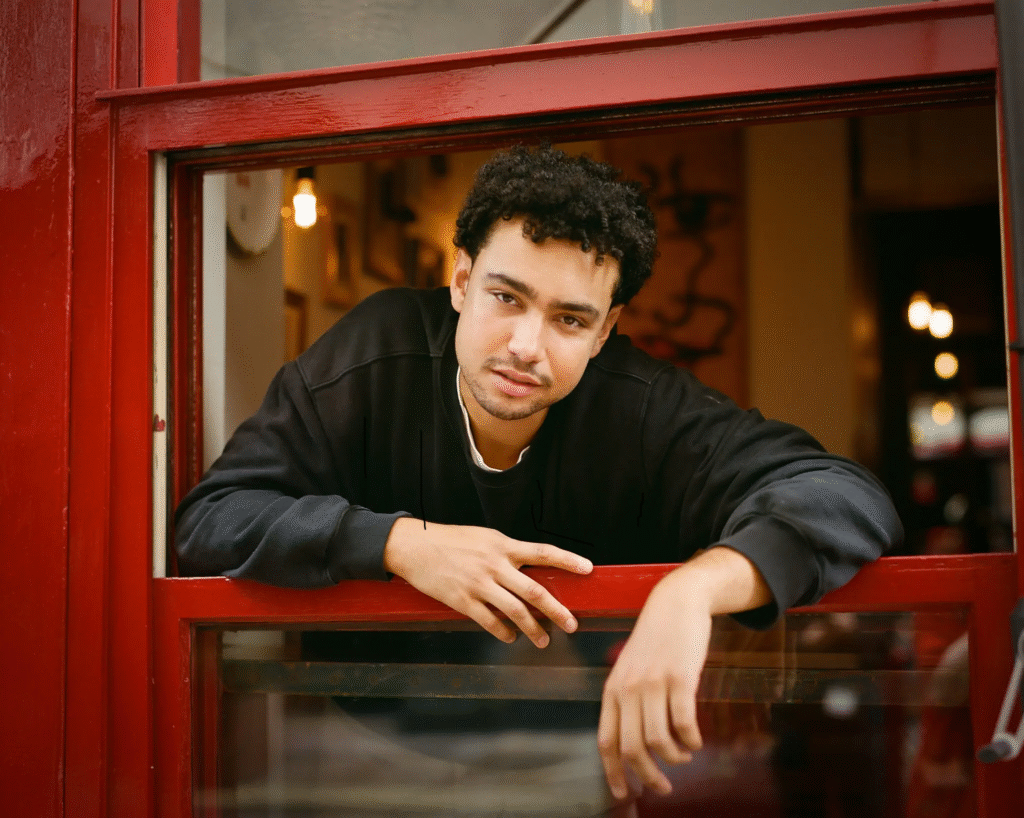
But even then, Madekwe gives Oliver a seductive, unpinnable appeal, which is a daunting transition, especially after picturing himself as Matthew. “I was assured that there would be no music in the movie,” he said, “and I kept asking, ‘Are we sure?’ Cut to making a full EP. I’m performing live concerts in front of people and recording with an incredible producer. When you’re in the booth with a string quartet, you can’t put one foot in and one foot out.”
Russell didn’t set out to create Oliver as British, but he enjoyed the way Madekwe developed the character. “It was just a really difficult role to cast because we needed this guy to be believable as a star, to be able to do the music, and to show the depth and vulnerability in the movie and the aloofness. That’s a lot to ask.”
The story begins when a random encounter at the store where Matthew works results in an informal invitation to Oliver’s show that evening, when the bashful nobody— Pellerin, whose Québécois accent is skillfully hidden behind a laconic Southern California drawl, is subjected to hazing by several members of Oliver’s inner circle, some of whom appear to straddle the line between friend, sycophant, and support personnel.
Mathew only manages to break out of his shell enough to ace the exam, and as a result, he is soon absorbed into Oliver’s environment as a kind of temporary. Boy Friday, who is at the bottom of the pecking order but ready to do anything, including cleaning dishes at Oliver’s home in the mountains or serving as a do-it-yourself cinematographer for his new boss’s “Jackass”-style antics. His trip to Europe is captured in impressionistic flashes, and it is his first time ever visiting the continent.
Matthew’s proximity to fame has also made him a celebrity to youngsters, who are soon stopping him in the streets to ask for help and friendship. However, Matthew uses increasingly extreme (and ethically dubious) measures as he watches his standing in the group wane and other onlookers and would-be best friends fight for Oliver’s attention.
“I sent Théo a lot YouTube videos, just behind-the-scenes stuff of L.A. people hanging out,” Russell said of Pellerin, who on Zoom comes across as courteous, shy, and somewhat out of this world. “Because what people won’t know is how truly alien this world is for him. It is so not his lifestyle or how he behaves or what he is even interested in.”
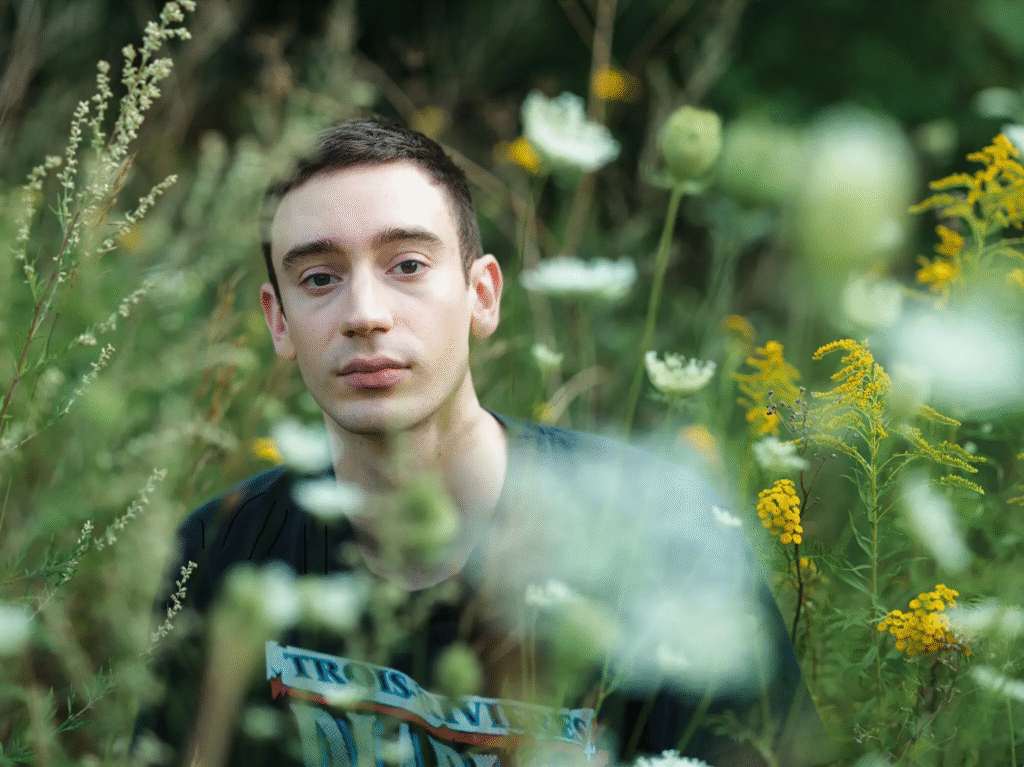
In order to immerse his co-star in the ridiculousness of Hollywood, Madekwe also played his role. “I’m not sure if I’m permitted to say this, but before we started filming, Archie brought me to Paris Hilton’s birthday party,” Pellerin said. “It was really fun for me to be in front of a lot of characters that I had never met, but who really exist in that town.” (Madekwe appeared unfazed by the disclosure; “Put Paris in the special thanks,” he deadpanned.)
The movie’s authenticity relies on Russell’s meticulous scene-setting, including the attire, slang, after-after parties, and, of course, the music. Blume, Russell’s longtime buddy and a producer of hit songs for musicians like Gucci Mane and Vince Staples under the moniker Kenny Beats, was in charge of creating Oliver’s sound. “There were times when I made Archie sing a line 50 times,” Blume admitted, “But it was more about, ‘Can you be a little laid back and a little offbeat and a little bit raspy here?’ We were just being very, very detailed.”
“Lurker” takes a turn in the last act, ending on a note of subtle ambivalence. It was Russell’s vision for the film. “I think people are invested in both characters at different times,” he said. “Their sympathies waiver or fluctuate. And the fun of the movie is, ‘Where do you draw the line?'” It was crucial to reveal the off-notes and fissures in a story that deliberately avoids smoothing out its darker, more unpleasant corners.














